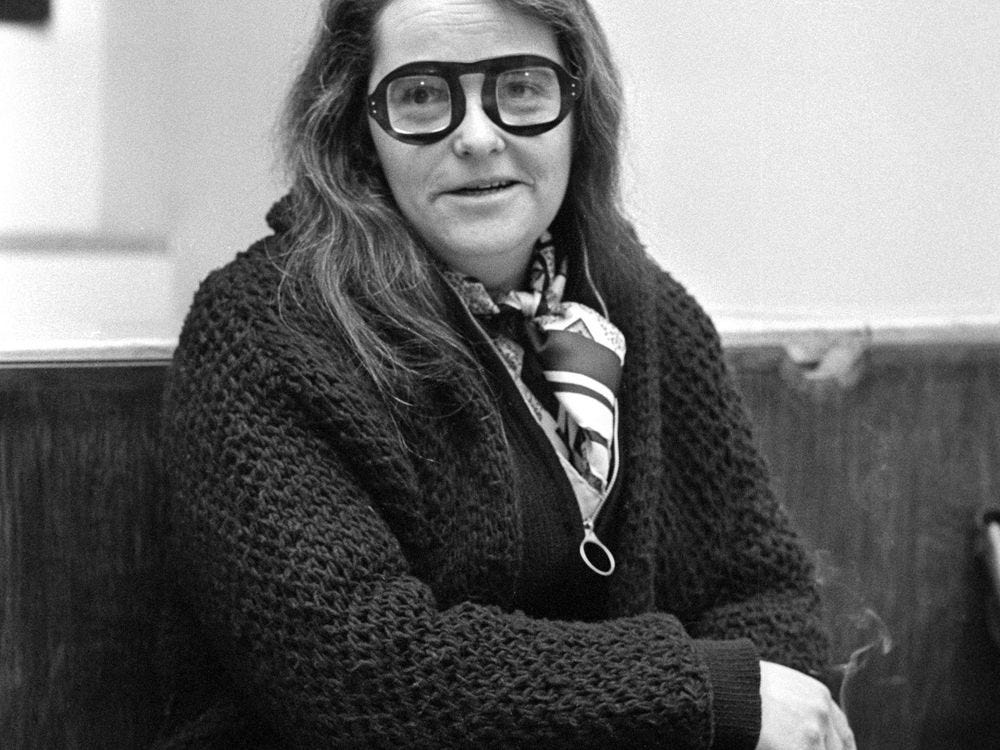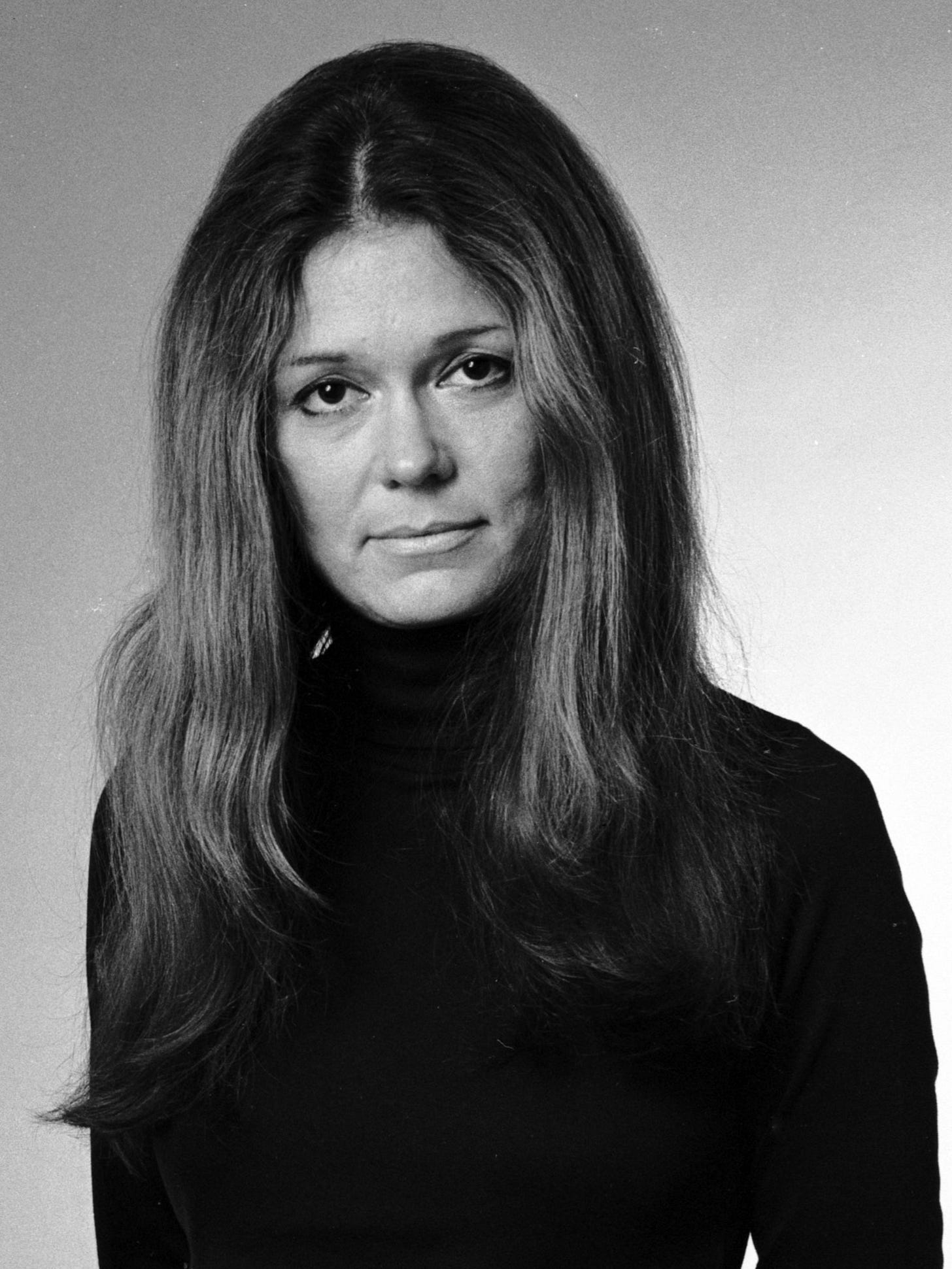How Broken Families and Failed Men Created 20th Century Feminism
Reflecting on the early lives of Shulamith Firestone, Kate Millett and Gloria Steinem
Feminism in the 20th century was a decisive break from its predecessors in the 19th. According to feminist critic and American Enterprise Institute scholar Christina Hoff Sommers, while ‘equity’ feminists in the mold of Harriet Taylor Mill and Elizabeth Cady Stanton were advocating for the rights of women under a philosophy of Enlightenment liberalism, ‘gender’ feminists such as Shulamith Firestone, Gloria Steinem and Kate Millett took inspiration from counter-Enlightenment figures such as Karl Marx and contemporary radicals such as Herbert Marcuse. Claiming continuity with the 19th century ‘first wave’ feminists while having little appreciation for their Enlightenment beliefs, the ‘second wave’ feminists were convinced that “women are in a gender war” similar to Marx’s theory of class conflict, and that solidarity amongst women comes from “join[ing] in the common struggle against patriarchy.”
Conservatives are correct in pointing out that second-wave feminism poses a direct attack on the traditional family. Shulamith Firestone, one of the leading lights of the second wave, said that pregnancy was “barbaric” and that feminists should work towards “changing a fundamental biological condition” - referring to a woman’s natural ability to give birth and bear children. However, what many conservatives are overlooking is that for radical feminists like Firestone, the traditional family was a source of profound agony and grief. What Firestone shared with her ideological counterparts, such as Gloria Steinem and Kate Millett, were years of childhood suffering under broken homes and failed father figures. By examining the early lives of these figures, we should conclude that radical feminism was not merely an outgrowth of the 60s’ countercultural milieu, but rather a political manifestation of genuine personal trauma.
Shulamith Firestone was born in 1945 in Ottawa, Canada, the second of six children and the oldest daughter. Her mother was Kate Weiss, a German Jew who fled the Holocaust, and her father was Sol Feuerstein, a Brooklyn Jewish salesman who served in the Army during World War II (he later Anglicized the family name into ‘Firestone’). It was during his service that, according to Susan Faludi, “Sol’s unit marched into the liberated Bergen-Belsen concentration camp.” In the New Yorker tribute piece to Firestone, Faludi chronicles the harsh treatment Feuerstein reserved to his oldest daughter. “My father threw his rage at Shulie,” says her sister Tirzah. Another sister, Laya Firestone Seghi, recounts an ugly fight between Shulamith and her father, when the former was sixteen: “Father and daughter grappled on the stairs, with Sol shouting, “I’ll kill you!,” and Shulamith yelling back, ‘I’ll kill you first!’” When young Shulamith asked her father why she had to make her brother’s bed, the response was: “Because you’re a girl.” Tirzah also recalls the passivity of her mother Kate, whom she says was governed by “what she regarded as ‘what Jewish women do.’” Enduring the tyranny of the father and the submissiveness of her mother, Shulamith Firestone formed her early views of women’s oppression and the hegemonic domination of the patriarchy.
Firestone’s notable contemporary, Kate Millett, was best known for her treatise Sexual Politics (1970), where she states that “Patriarchy, reformed or unreformed, is patriarchy still: its worst abuses purged or foresworn, it might actually be more stable and secure than before.” She was born in 1934 in St. Paul, Minnesota. Her father James Albert was an engineer, and her mother Helen Feely was a teacher. By her own account, Millett’s childhood was filled with sorrow. The Millett family lived in poverty, and James Albert regularly beat his daughter. In Millett’s own words, her father was “mind-blowing frightening.” James Albert was also an alcoholic, and when Kate was 14, he deserted his family, “consigning them to a life of genteel poverty.”
Arguably the most famous of the 20th century feminists is Gloria Steinem. At the age of 89, she remains a prominent voice of American feminism, as she has been for the past six decades. According to an Esquire profile, her beliefs in the dangers of ‘patriarchy’ are still consistent:
[M]en are rewarded for competition. Whereas women are more likely to be rewarded for cooperation or at least for encouraging cooperation in the family. It’s not men’s fault—they got born into this system too. But given the structure they got born into, they may be encouraged to be less empathetic. Boys compete.
Christina Hoff Sommers, in a note of irony, characterizes this line of thinking as “Women are from Venus and Men are from Hell.”
Gloria Steinem was born in 1934, to parents Leo and Ruth Nuneviller. According to Professor Lauren E. Duncan of Smith College, Leo Steinem was “fun and affectionate when he was around, but he was not around very much; he was an inconsistent provider.” Professor Duncan notes that from her relationship with her father, Steinem internalized three axioms about male-female relationships:
That men are unreliable providers: Partly because of the Depression Era which Steinem was born into, her father did not have a steady job and income, thus failing to to provide the family with financial stability.
That men make excellent adventure partners: Even if Leo was not able to provide for his family, Steinem still remembers him as a fun, warm and adventurous parent. She recounts in her autobiography, My Life on the Road:
My father was always sure that a movie and a malted could cure anything—and he wasn't wrong. We would cross the sidewalk that sparkled with mica, enter the gilded lobby with fountains where moviegoers threw pennies for luck and future return, and leave our cares behind. In that huge dark space filled with strangers, all facing huge and glowing images, we gave ourselves up to another world. Now I know that both the palaces and the movies were fantasies created by Hollywood in the Depression, the only adventures most people could afford.
That men do not necessarily know more than women: the most essential lesson Steinem learned from her father was that “men are not wiser or smarter or more competent or inherently more valuable than women.” Her fundamental beliefs in the equality of men and women, as well as her objections to the traditional gender roles governing her time, stem from her having to fulfill the duties of her father at an early age.
Furthermore, Steinem’s mother Ruth suffered from severe psychological problems, among them depression, anxiety and a dependence on chloral hydrate. So from the age of ten to her going off to college, Steinem was the sole caretaker of her mother, as Leo was frequently absent from the home. “I was always worried that she might wander into the streets,” Steinem recounts. “or forget that I was in school and call the police to find me—all of which sometimes happened.” “[W]hen the child is distressed,” Professor Duncan writes. “they learn that it is ineffective to look to their caregiver for comfort, and so they learn to handle their distress alone, often avoiding or suppressing emotions and emotionally close relationships. As adults, they can be almost pathologically independent.”
Of course, I do not mean to suggest that all 20th century feminists were daughters of broken families and inadequate fathers. Simone de Beauvoir, for example, credits her father Georges Bertrand with inspiring her to become a free-thinking intellectual: “He seemed to me to belong to a rarer species than most men… No one in my circle of acquaintances was nearly as funny, as interesting and as brilliant as he; no one else had read so many books, or knew so much poetry by heart, or could argue with such passion.” However, I would argue that for feminist thinkers like Firestone, Millett and Steinem, their respective family backgrounds play a significant role in shaping their thoughts on male-female relations. The men in their lives, as well as the traditional family structure they belong to, have failed them. Even if one disagrees with these thinkers in particular, or the ‘second wave’ of feminism in general, it is best to understand that the movement and its leaders were a response to a deep sense of betrayal and mistrust. For them, the personal truly was political.






